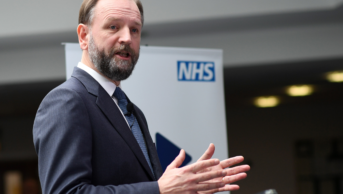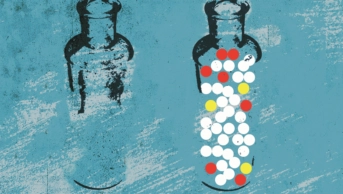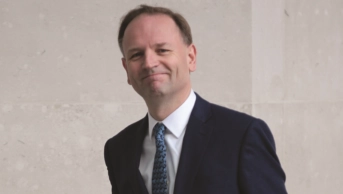
istockphoto.com
Making decisions within the NHS involves a painful conflict of heart versus head, a combination of caring for patients versus hard-headed economics. Clinical commissioning groups (CCGs) — NHS organisations that organise the delivery of NHS services in England — operate by commissioning (buying) healthcare services. The NHS has a finite pool of resources from which it must meet its obligation to provide the highest possible standard of care to the 64 million inhabitants of the UK. Therefore, it stands to reason that any opportunity to cut spending on ineffective treatments ought to be enthusiastically embraced. With this in mind, we at the Good Thinking Society (a charity that is pro-science and anti-pseudoscience) successfully challenged NHS Liverpool CCG over their continued support for homeopathy[1]
, and in our ongoing campaign we are calling on other CCGs and NHS bodies around the UK to take this opportunity to also cease their funding for homeopathy and other treatments with little evidence of efficacy.
In the category of “ineffective treatments”, homeopathy must stand head and shoulders above many of its competitors. The two-centuries-old German nostrum predicated on the mistaken beliefs that “like cures like” and that the dilution of a substance increases its potency. Indeed, most remedies contain no active ingredients at all.
If prior implausibility alone were not enough to cement the case against homeopathy, a plethora of trials, meta-analyses and comprehensive reviews overwhelmingly conclude that these so-called remedies offer no benefit beyond that of placebo – with the most notable and most damning conclusions coming from the Australian National Health and Medical Research Council in March 2015[2]
, and from the UK government’s Science and Technology Select Committee in 2010[3]
.
Despite the overwhelming evidence against the use of homeopathy, the NHS continues to fund homeopathic consultations and medicines.
Despite the overwhelming evidence against the use of homeopathy, the NHS continues to fund homeopathic consultations and medicines. Not surprisingly, such funding for sugar pills goes against the advice of the British Medical Association[4]
, the chief medical officer[5]
, the chief scientific adviser[6]
and the Royal Pharmaceutical Society of Northern Ireland[7]
– even the NHS’s own website highlights that homeopathic remedies are not effective as a treatment “for any health condition”[8]
.
Waste of money and resources
The exact extent to which NHS resources are wasted on ineffective homeopathic treatments is still somewhat uncertain, with our investigation suggesting the figure to be between £2m and £5m per year, split between 31 CCGs primarily clustered around the current or former homeopathic hospitals in London, Liverpool, Bristol and Glasgow.
Somewhat encouragingly, 85% of CCGs in England confirmed that they had no spending on homeopathy in 2013–2014 and no plans to fund it at any point in the future. Furthermore, in many of the CCGs where homeopathy funding still remains, levels of spending are significantly lower than was reported in the 2010 Evidence Check, thanks to the efforts of individuals such as academic researcher Edzard Ernst and groups such as Sense About Science. Figures from the Health and Social Care Information Centre show that prescriptions dispensed in community pharmacies for homeopathy on the NHS in England have fallen by over 94% in the past 20 years[9]
,[10]
. In Scotland, NHS Lanarkshire voted in 2014 to end homeopathic referrals[11]
, putting pressure on the Glasgow Homeopathic Hospital and the £1.3m per year spent on treating just 355 patients[12]
. These appear to be clear, positive signs that the tide is turning against this particular form of quackery.
However, the few CCGs with a stubborn loyalty to this form of homeopathy remain a genuine problem for those who care about patients and evidence-based medicine. This is why we believe that our successful challenge to NHS Liverpool CCG represents a significant milestone.
Our success was partly based on the fact that Liverpool CCG (working in conjunction with other CCGs in the Merseyside region) commissioned a full review of a range of alternative medicines in 2014, returning the recommendation that each of the therapies considered – including homeopathy – ought not to receive NHS funding. Despite a further public consultation uncovering no support for homeopathy, the CCG elected to reject their recommendations and recommission homeopathy. It is this decision that we successfully challenged and, as a result, Liverpool CCG will be running a new consultation on homeopathy in July 2015.
We will be working with the CCG to ensure its decision making is informed by the best available evidence, and we have confidence that the CCG will make a fair and correct decision. After all, every single penny spent on ineffective treatments such as homeopathy represents money which could be better allocated to interventions that offer real benefit to patients.
As an extension of our campaign, we have written to CCGs in the North West and South West England to invite them to follow Liverpool’s lead and re-examine their continued support for a modality so bereft of evidence and patient benefit. With its duty to patients to ensure that NHS funds are spent as effectively and responsibly as possible, we hope each CCG will seriously consider the ramifications of their ongoing support for homeopathy.
Misguided criticisms
Unsurprisingly, when news of our success in Liverpool became public, there were many homeopathy supporters who were outraged. Some of the criticism queried why we are focusing on homeopathy when there are other ineffective treatments and drugs available on the NHS — this point is misguided for a number of reasons. Primarily, it overlooks the fact that no amount of legitimate concern over another modality does anything to bolster the credibility of homeopathy — if every other treatment did not work, there would still be no good evidence in favour of homeopathic remedies.
No amount of legitimate concern over another modality does anything to bolster the credibility of homeopathy
Such criticisms also demonstrate a fundamental misunderstanding of our position: advocates of evidence-based medicine are not dogmatic campaigners who are ideologically against homeopathy, or against alternative medicine as a whole, but instead call for scrutiny of any modality not supported by evidence, be they ‘alternative’, ‘complementary’ or indeed ‘conventional’. Before a patient is subjected to any intervention, it is imperative first to have a good reason for believing it might be of benefit. In fact, for this very reason, the Good Thinking Society has been supportive of and helped to establish the All Trials campaign, which aims to ensure pharmaceutical companies are fully transparent in publishing each of their studies.
Perhaps the most persistent criticism of our campaign to prevent the funding of ineffective homeopathic treatments on the NHS is that to do so would deny patients their right to choose a healthcare option. Indeed, such issues have been raised both by alternative medicine supporters and by Liverpool CCG itself. Of course, patients cannot have a completely free choice, otherwise the NHS would be forced to offer every therapy under the sun, from aura enhancements to chakra transplants. Moreover, fundamental to the notion of patient choice is informed consent: for a choice to be an informed choice, patients cannot be offered a treatment known to be no better than placebo, while being incorrectly told that it is effective. Such actions fundamentally undermine the nature of informed consent, and jeopardises the trust between a doctor and a patient.
Undeserved credibility
Finally, it is worth bearing in mind the NHS’s influence on people’s decisions when buying over-the-counter medicines or visiting a private practitioner. The fact that the NHS still offers a non-evidence based treatment such as homeopathy, albeit via a minority of CCGs, is enough to give homeopaths an undeserved level of credibility. Who can blame a patient for thinking “homeopathy must work because it is offered by the NHS”? Hence, every £1 of NHS money being wasted on this pseudoscientific medicine only encourages more money to be wasted on homeopathy pills on the high street or on visiting homeopaths. Moreover, we know that the majority of homeopaths do not actively support vaccination[13]
, and some seem to believe that homeopathy can protect against malaria[14]
. Does the NHS really want to help prop up this dangerous sugar pill industry?
Michael Marshall is project director and Simon Singh is founder of the Good Thinking Society, based in London.
References
[1] Good Thinking Society. NHS homeopathy challenge.
[2] Australian Government National Health and Medical Research Council. Homeopathy Review.
[3] www.parliament.uk. Homeopathy NHS funding and provision.
[4] Triggle N. Doctors call for NHS to stop funding homeopathy. BBC News 29 June 2010.
[5] Silverman R. Homeopathy is ‘rubbish’, says chief medical officer. The Telegraph 24 January 2013.
[6] Collins N. Homeopathy is nonsense, says new chief scientist. The Telegraph 18 April 2013.
[7] BBC News. New guidance for homeopathy use. 23 April 2010.
[9] Health and Social Care Information Centre. Prescription cost analysis, England 2014.
[10] The Nightingale Collaboration. The further decline of homeopathy on the NHS.
[11] BBC News. NHS Lanarkshire votes to end homeopathic referrals. 9 December 2014.
[12] Eleftheriou-Smith L-M. NHS criticised for spending £1.3m on homeopathic hospital in Glasgow. The Independent 1 August 2014.
[13] Schmidt K & Ernst E. MMR vaccination advice over the internet. Vaccine 2003;21:1044–1047.


